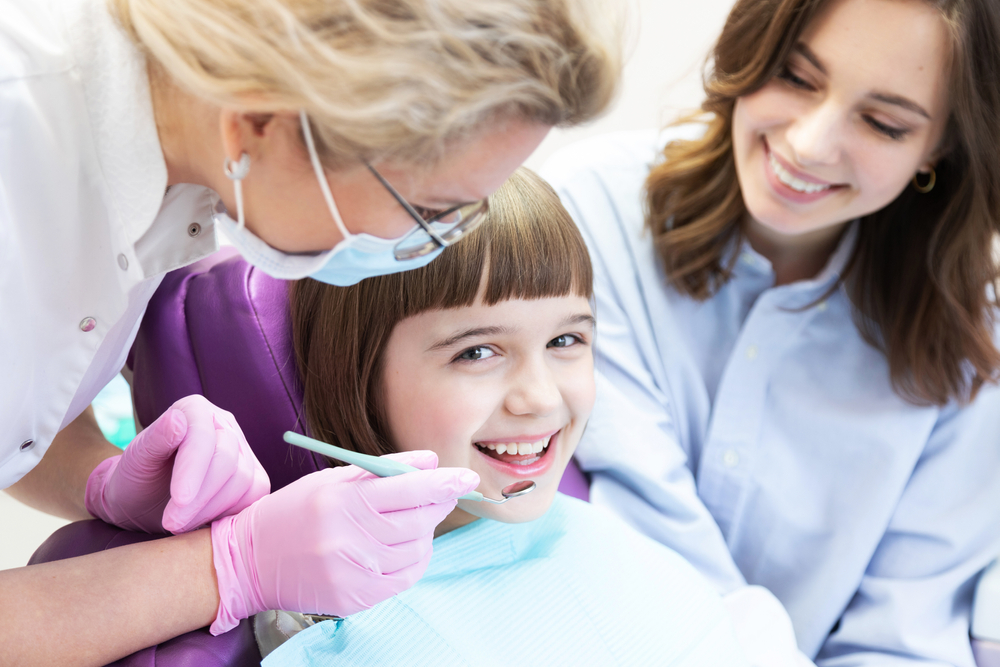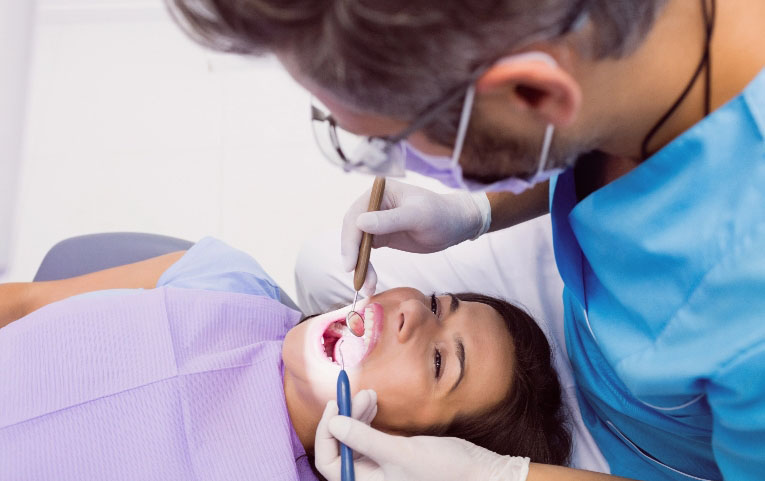Understanding when and how to seek emergency dental treatments is crucial for mitigating pain, preventing further damage, and ensuring a swift return to health.
Emergency dental treatments focus on relieving pain, treating infections, and addressing injuries capable of leading to health complications if left untreated. Early intervention in the case of dental emergencies can prevent the progression of oral health issues, reducing the risk of long-term damage.
This article offers insights into the nature of dental emergencies, the importance of prompt care, and how to navigate these challenging situations with confidence.
Understanding Emergency Dental Treatments
Emergency dental treatments help reduce pain and prevent further complications, ensuring the health of your teeth and gums.
What Is Emergency Dental Care?
Emergency dental care includes a range of treatments aimed at providing relief from acute dental pain, treating infections, and addressing injuries to the teeth and surrounding tissues. This type of care is essential for situations where waiting for a regular dental appointment could result in significant discomfort or exacerbate the condition.
What’s the Difference between Routine and Emergency Dental Services?
Routine dental services include regular check-ups, cleanings, and preventive treatments designed to maintain oral health. In contrast, emergency dental treatments focus on urgent issues requiring immediate attention, such as severe pain, dental trauma, or infections. Recognising when to seek emergency care is crucial for effective treatment and recovery.
Do You Need Emergency Dental Treatment?
If you have any of the following, contact an emergency dentist immediately. Gentle Dental emergency care is available around the clock on 1300 99 69 39. Timely intervention is key to preventing further complications and ensuring the best possible outcome for your dental health.
Toothaches
A toothache can be a sign of various underlying issues, such as cavities, gum disease, or an abscess. You should not ignore persistent or severe tooth pain.
Broken, Chipped, or Knocked-Out Teeth
Injuries to the mouth can result in broken, chipped, or even knocked-out teeth. These types of dental emergencies often result from accidents or sports injuries.
Lost Fillings or Crowns
Fillings and crowns may become loose or fall out, exposing the tooth to potential infection and discomfort. An emergency dentist can replace or repair the lost filling or crown, protecting the tooth from further damage.
Abscesses and Infections
Dental abscesses and infections are serious conditions with the potential for ongoing pain, swelling, and fever. They require immediate attention to prevent the spread of infection.
Dental Pain and Other Symptoms
Pain in your mouth or head is a primary indicator of a dental emergency, signalling something is wrong. However, other symptoms, such as swelling, bleeding, or the presence of pus, also warrant immediate attention.
Help Yourself Pain Relief
The following are some actions you can take to help minimise pain.
Cold Compress Application
Applying a cold compress to the face near the affected area can significantly reduce swelling and numb the discomfort. For effective pain management, it’s recommended to apply the cold compress at intervals of 15 minutes. This method is particularly useful for injuries involving soft tissue damage or swelling.
Saltwater Mouth Rinse
A saltwater rinse can serve as a temporary solution to reduce pain and prevent infection. Dissolve a teaspoon of salt in a cup of warm water and gently swish the solution around the affected area for about 30 seconds before spitting it out. This can be repeated several times a day to help manage pain and cleanse the oral cavity.
Over-the-counter dental pain relievers
Over-the-counter (OTC) pain relievers can provide short-term relief from dental pain. It’s important to follow the recommended dosage instructions. Always consult with a healthcare professional about the suitability of a specific medication.
Avoid certain foods
Until you can receive emergency dental care, it’s advisable to avoid hot, cold, or sugary foods as they can worsen the pain. Opting for soft foods and avoiding chewing on the side of the mouth where the pain is located can also help minimise discomfort.
Clove oil application
Clove oil contains Eugenol. This is a chemical which can act as an antibacterial agent and a natural anaesthetic. Add a small amount of clove oil to a cotton ball and dab it on the affected area to temporarily reduce pain. Make sure you use only a small amount, as excessive amounts can irritate the oral tissues.
Keep the head elevated
Elevating your head, even while sleeping, can help reduce blood flow to the affected area, potentially decreasing pain and swelling. Using extra pillows to prop up your head can be an effective strategy to manage discomfort during the night.
While these measures can provide temporary relief, they are not a substitute for professional emergency dental treatments. Persistent pain or discomfort is a sign you need to seek emergency dental care to address the underlying issue.
What Happens with Emergency Dental Treatments?
Emergency dental care may involve procedures to address acute pain, trauma, infections, and other urgent dental issues promptly and effectively.
Immediate dental pain relief
The first aim of an emergency dentist is to alleviate pain and stabilise the dental condition. This may involve:
- Administering local anaesthesia to numb the affected area, providing immediate relief from pain.
- Applying temporary dressings to sensitive areas or exposed nerves until a permanent solution can be implemented.
- Stabilising loose teeth with splints, especially in cases of trauma, to prevent further damage and encourage healing.
Treatment of mouth infections
Dental infections and abscesses require urgent attention to prevent the spread of infection and more serious health complications. Treatment options include:
- Prescribing antibiotics to fight the infection, especially if swelling or fever is present.</li
- Performing root canal therapy on affected teeth to remove infected tissue and save the tooth from extraction.
- Draining abscesses to relieve pressure and pain, followed by appropriate restorative procedures to address the cause of the infection.
Repairing broken or chipped teeth
Accidents can lead to broken, chipped, or fractured teeth, requiring dental intervention to restore function and appearance. Treatments may involve:
- Bonding for minor chips, using a tooth-coloured composite resin to restore the tooth’s shape.
- Dental crowns for more significant damage, providing a durable solution for restoring the tooth’s structure and function.
- Veneers for front teeth damage offer a cosmetic solution and protect the tooth’s surface.
Re-implantation or replacement of knocked-out teeth
A knocked-out tooth represents one of the most urgent dental emergencies, with the best outcomes achieved through speedy reaction. The emergency dentist may attempt to:
- Re-implant the tooth if the patient presents the knocked-out tooth within a short window of time, typically less than an hour.
- Discuss replacement options such as dental implants or bridges if re-implantation is not viable, ensuring the patient understands the process and benefits of each option.
Emergency cosmetic dental procedures
In some cases, emergency dental care also involves cosmetic procedures to address immediate aesthetic concerns resulting from accidents or injuries. These may include:
- Immediate dental bonding to address minor aesthetic issues temporarily until more permanent solutions can be applied.
- Temporary crowns or veneers provide a quick fix for damaged or lost restorations, ensuring the patient’s smile remains intact.
How To Prevent Dental Emergencies
By taking a proactive approach to dental care, you can reduce the risks of painful and potentially serious dental issues. Personal dental care includes oral hygiene, regular dental check-ups, using protective gear during physical activities, and following a balanced diet.
Daily oral hygiene practices
Brushing twice a day with fluoride toothpaste, flossing daily, and using an antiseptic mouthwash can reduce the risk of tooth decay, gum disease, and other conditions requiring emergency dental treatments.
Replace your toothbrush every three to four months or sooner if the bristles become frayed, to ensure the effectiveness of your brushing.
Regular dental check-ups
These appointments allow your dentist to detect and resolve potential issues before they become problems requiring emergency intervention.
During a check-up, dentists can identify early signs of tooth decay, gum disease, and other oral health concerns, providing treatments or preventive measures to avoid future complications. Aim to visit your dentist at least twice a year or as recommended based on your specific dental health needs.
Protective mouth gear for sports and high-risk activities
If you take part in sports or activities posing a risk to their teeth, wearing protective gear is highly recommended. Mouthguards, for example, can prevent a wide range of dental injuries, including chipped or broken teeth, and injuries to the lips, tongue, face, or jaw.
A balanced diet to prevent dental emergencies
Consuming foods rich in vitamins and minerals supports gum health and tooth strength, while limiting sugary snacks and acidic beverages can reduce the risk of tooth decay and enamel erosion.
Incorporating plenty of water, dairy products, lean proteins, fruits, and vegetables into your diet can help maintain a healthy oral environment and strengthen your teeth against potential emergencies.
Why Choose Gentle Dental Care for Emergency Dental Treatments?
In this guide, we’ve explored emergency dental treatments, from understanding what constitutes a dental emergency to how you can take steps to relieve pain before reaching professional help. We’ve discussed the vital role of emergency dentists and how preventive measures can significantly reduce the risk of dental emergencies.
Now, we take a look into the benefits of choosing Gentle Dental Care for your emergency dental needs.
- Expert care when you need it most:At Gentle Dental Care, we understand the urgency and discomfort associated with dental emergencies. Our team of dental professionals is equipped to provide immediate, expert care to alleviate pain and address the issue.
- Comprehensive emergency services:Whether you have a nasty toothache or dental trauma, or are facing any other urgent dental issue, we offer a wide range of emergency dental services to meet your needs.
- Patient comfort and convenience:We prioritise your comfort and strive to make your emergency visit as stress-free as possible. With flexible scheduling, including availability 7 days a week, we ensure you receive the care you need when you need it.
Remember, timely intervention is key to preventing further complications and ensuring the best possible outcome for your dental health. Do not hesitate to reach out to us at Gentle Dental Care for immediate assistance and expert care tailored to your emergency dental needs.
Your health and comfort are our top priorities, and we are here to support you every step of the way.













